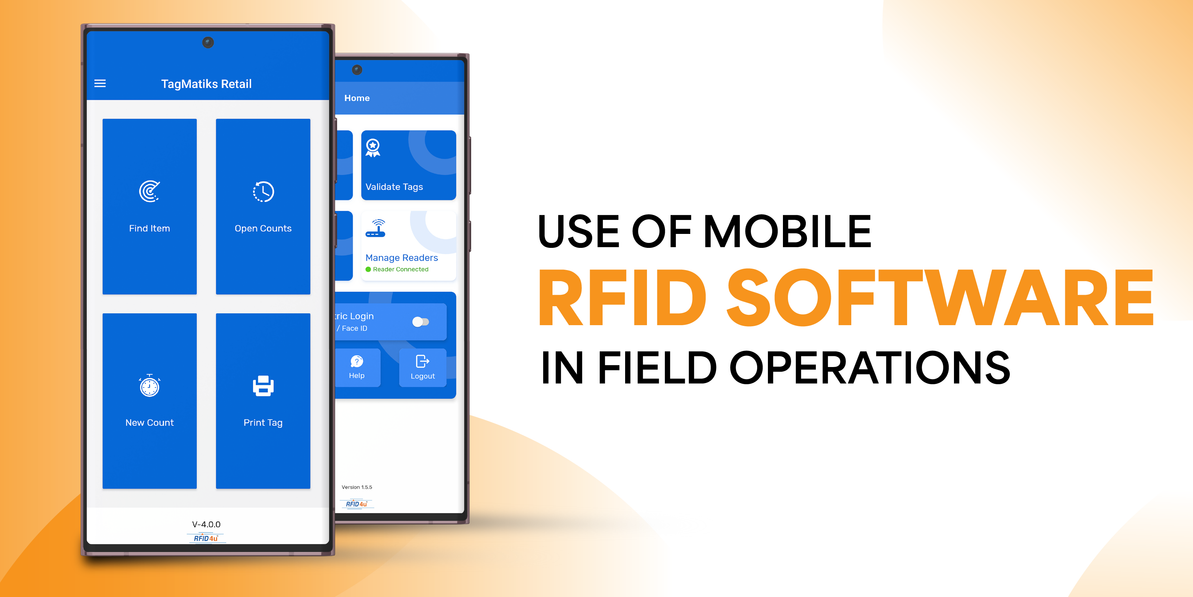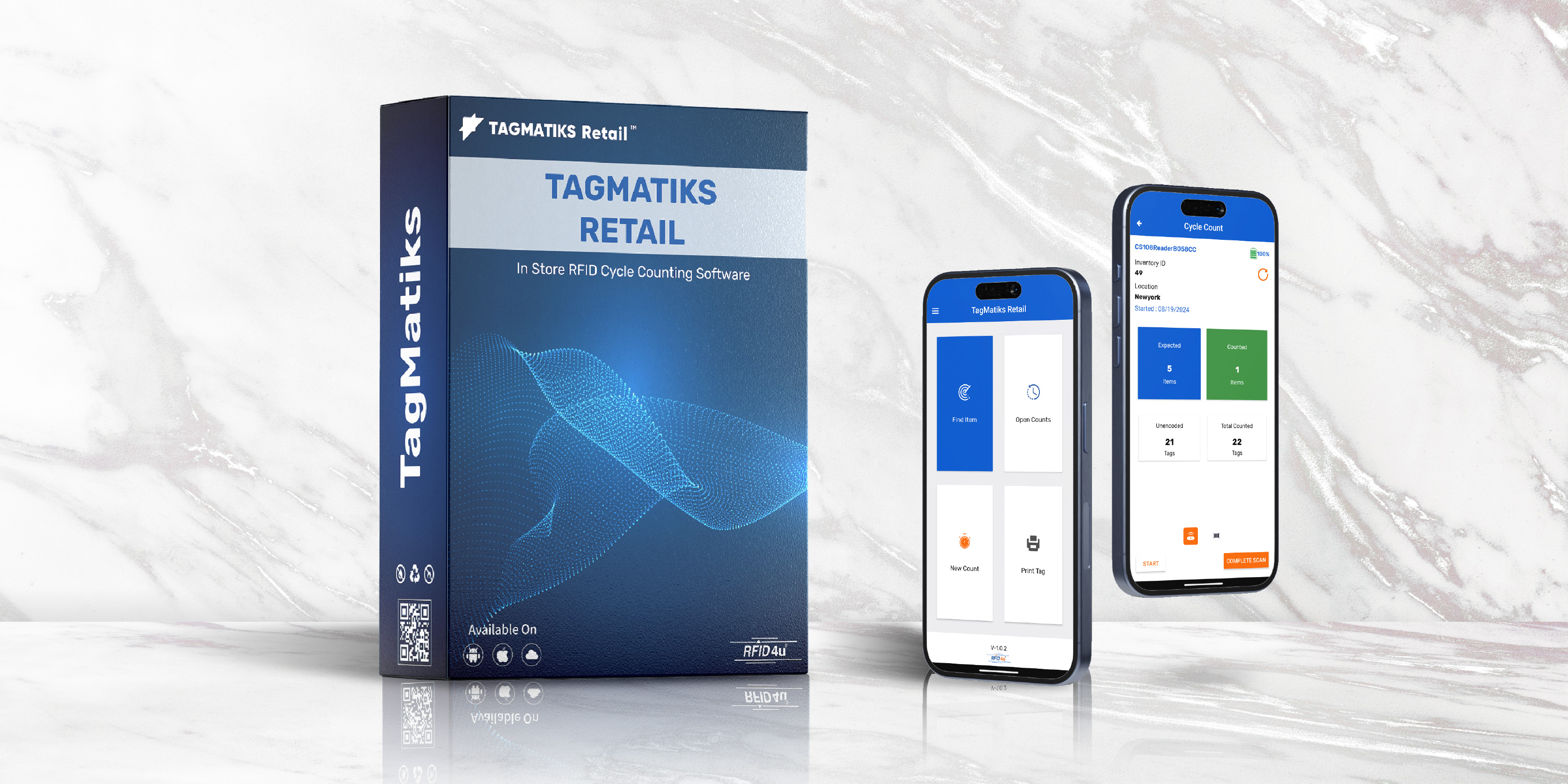Applications of Mobile RFID Software: Enhancing Field Operations
Introduction
Radio Frequency Identification (RFID) technology has revolutionized how businesses track and manage assets, inventory, and operations. RFID becomes an even more powerful tool for enhancing field operations across various industries when combined with mobile software applications. This article explores the world of mobile RFID software applications, their benefits, use cases, and impact on modern field operations.
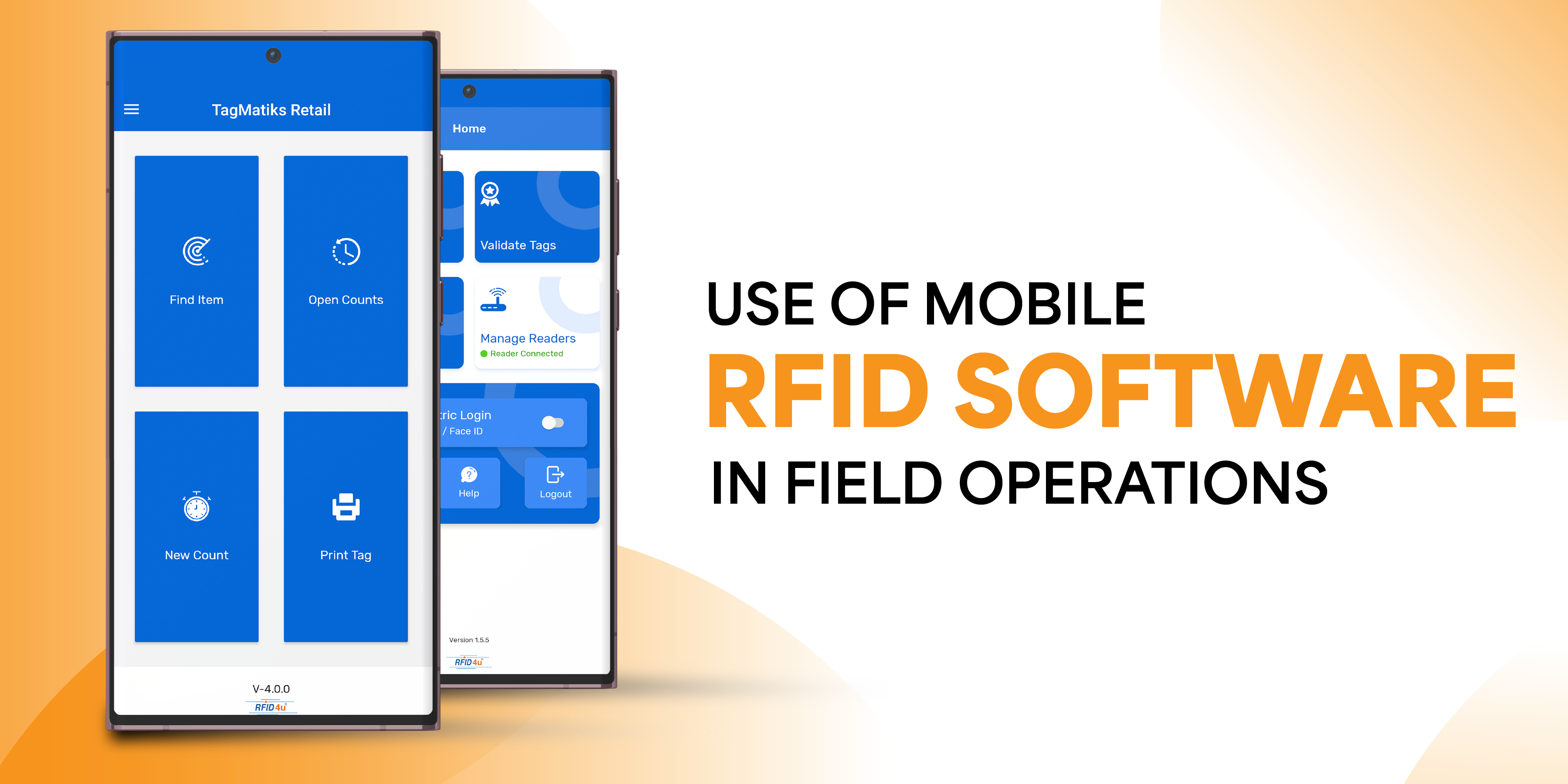
Understanding RFID Technology
Before delving into mobile applications, it's crucial to understand the basics of RFID technology:
- RFID Tags: Small electronic devices containing a chip and an antenna can store and transmit data.
- RFID Readers: Emit radio waves to detect and read information from RFID tags.
- RFID Software: Programs that process and manage the data collected by RFID readers.
The Rise of Mobile RFID Applications
The integration of RFID technology with mobile devices has led to the development of versatile and powerful software applications. These applications leverage the portability of smartphones and tablets, combined with their computing power and connectivity, to create robust solutions for field operations.
Key Features of Mobile RFID Software Applications:
- Real-time data capture: Instantly read and record RFID tag information in the field.
- Cloud Integration: Synchronize data with cloud-based systems for immediate updates and access.
- Simple Data Collection: Use the in-built Inventory function to quickly count RFID tags associated with your items. The workflow includes the ability to toggle the power on the RFID handheld to control the read range.
- Robust Device Support: Mobile RFID Software includes out-of-the-box support for a wide variety of RFID readers and handhelds. Please contact us for the latest list of supported devices.
- Guided Cycle Counts: Use an RFID handheld to do a quick guided cycle count to determine any variances. The system will reported back expected, matched, missing, and misplaced assets. Run a report after completing the inventory to further analyze the data.
- Quick Check-In/Checkout: Use RFID, barcode, or keyboard entry to check in or checkout assets. When checking out assets, specify an employee to check out to, select a due date, if applicable, and annotate any notes regarding the checkout.
- User-friendly Interfaces: intuitive designs that require minimal training for field personnel.
- Customization Options: Adapt the application to specific industry needs and workflows.
- Integration with Enterprise Systems: Connect with ERP, WMS, or other backend systems.
- Multi-platform Support: Our Mobile RFID software operates on various mobile operating systems (iOS, Android, Windows).
Enhancing Field Operations by Mobile RFID Software Applications
Mobile RFID software applications significantly improve field operations across multiple dimensions:
1. Increased Efficiency through RFID Software
- Faster Data Collection: eliminate manual data entry and reduce human errors.
- Streamlined Workflows: Automate processes and reduce the time needed for inventory counts or asset checks.
- Remote Management: Enable supervisors to monitor field activities in real-time.
2. Improved Accuracy from RFID Applications
- Reduced human error: minimize mistakes associated with manual data entry or barcode scanning.
- Consistent data capture: ensure uniform data collection across different field teams and locations.
- Auditable Trail: Create detailed logs of all RFID reads, including timestamps and locations.
3. Enhanced Visibility of assets and inventory
- Real-time Tracking: Monitor the movement and status of assets or inventory in the different fields.
- Comprehensive Reporting: Generate detailed reports on field operations, asset utilization, and inventory levels.
- Alert Systems: Set up notifications for specific events or threshold breaches.
4. Cost Reduction in daily operations
- Labor Savings: Reduce the time and personnel required for field operations.
- Asset Utilization: Improve the management and use of expensive equipment and resources.
- Loss Prevention: Quickly identify and locate missing or misplaced items.
5. Improved Customer Service
- Faster Response Times: Quickly locate and dispatch needed resources or products.
- Accurate Information: Provide customers with precise data on inventory or service status.
- Proactive Maintenance: Schedule preventive maintenance based on actual usage data.
Industry-specific Applications for RFID
Mobile RFID software applications have found utility across various sectors:
1. Use of RFID Retail Software
- Inventory management and tracking
- Anti-theft measures
- Customer experience enhancement (e.g., smart fitting rooms)
2. Healthcare Asset Tracking Software
- Patient tracking in hospitals through RFID.
- Medical equipment management and tracking in healthcare facilities.
- Medication authentication and tracking
3. Logistics and Supply Chain with RFID Applications
- Warehouse RFID asset tracking
- Shipment RFID tracking
- Use of RFID tags for Last-mile delivery confirmation.
4. Use of RFID Software and RFID Applications for Manufacturing
- Work-in-progress tracking using RFID
- RFID helps in quality control in plants.
- Tool and equipment management and tracking.
5. Use of RFID Software in Construction and Field Services
- Asset tracking of construction materials and equipment.
- Safety compliance checks in the construction field through RFID.
Challenges and Considerations of Mobile RFID Software Applications
While mobile RFID software applications offer numerous benefits, there are challenges to consider:
- Initial Investment: The cost of implementing RFID systems and mobile devices can be significant.
- Technical expertise: Staff may require training to effectively use the RFID technology.
- Environmental Factors: RFID performance can be affected by metal, liquids, or interference from other radio frequencies.
- Integration Complexities: Seamlessly connecting mobile RFID applications with existing enterprise systems can be challenging.
Different Mobile RFID Software Applications
Overview of TagMatiks RFID Software
TagMatiks offers a variety of software solutions primarily focused on RFID technology, catering to different needs such as asset tracking, inventory management, and data integration. Here’s a breakdown of the different TagMatiks software products:
1. TagMatiks Wedge
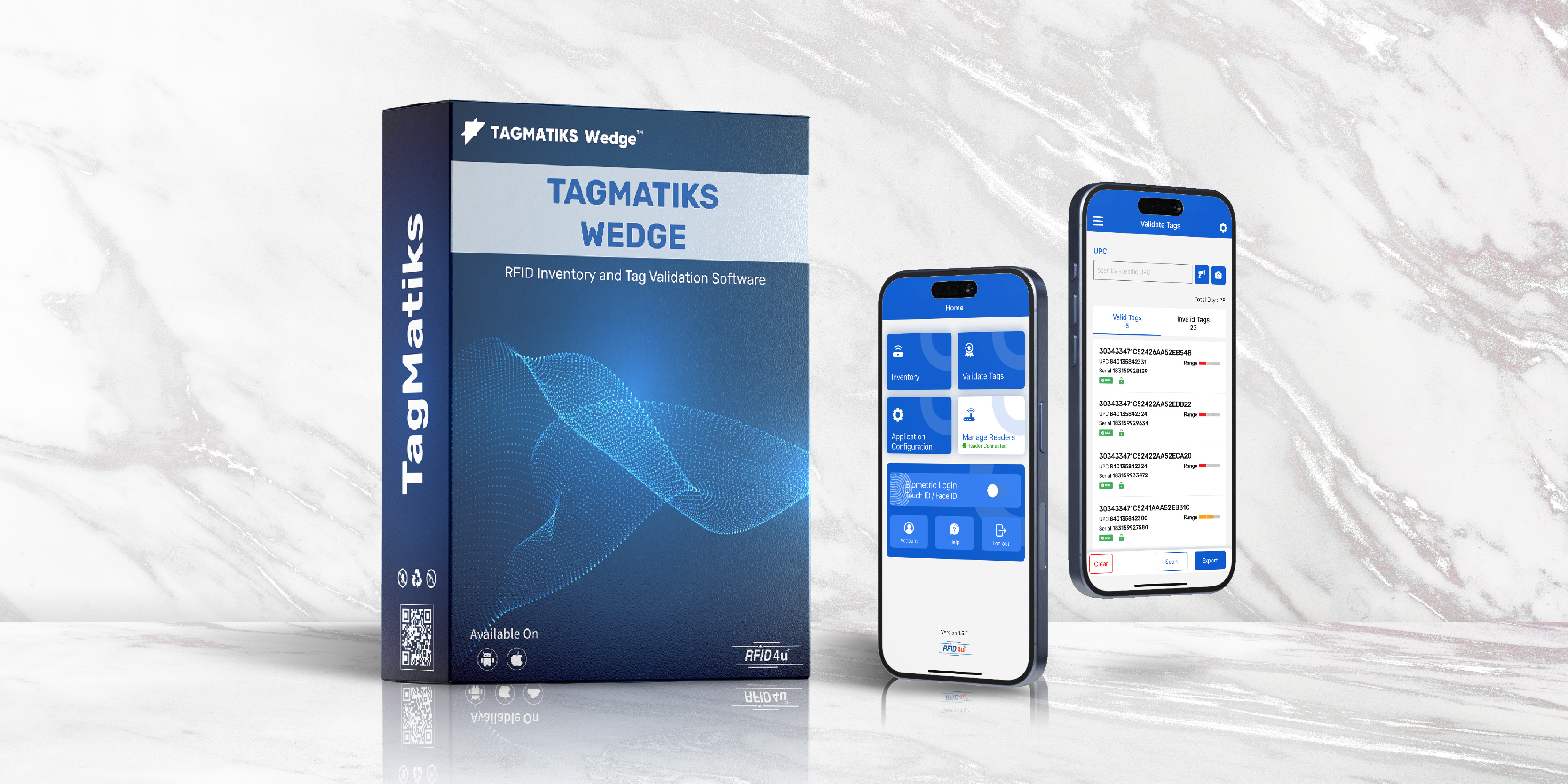
TagMatiks Wedge is designed for collecting RFID data using handheld devices. It allows users to feed this data directly into business applications, enhancing operational efficiency. There is a free edition available that supports up to 500 scans, making it accessible for smaller operations
2. TagMatiks Asset Tracking Lite
This is a lightweight version of the asset tracking software, ideal for businesses looking to start their asset tracking initiatives. It connects with RFID handheld scanners and can be used for tracking various types of assets, from tools to IT equipment. Users can utilize it for free up to 99 assets
3. TagMatiks AT (Asset Tracking) RFID software
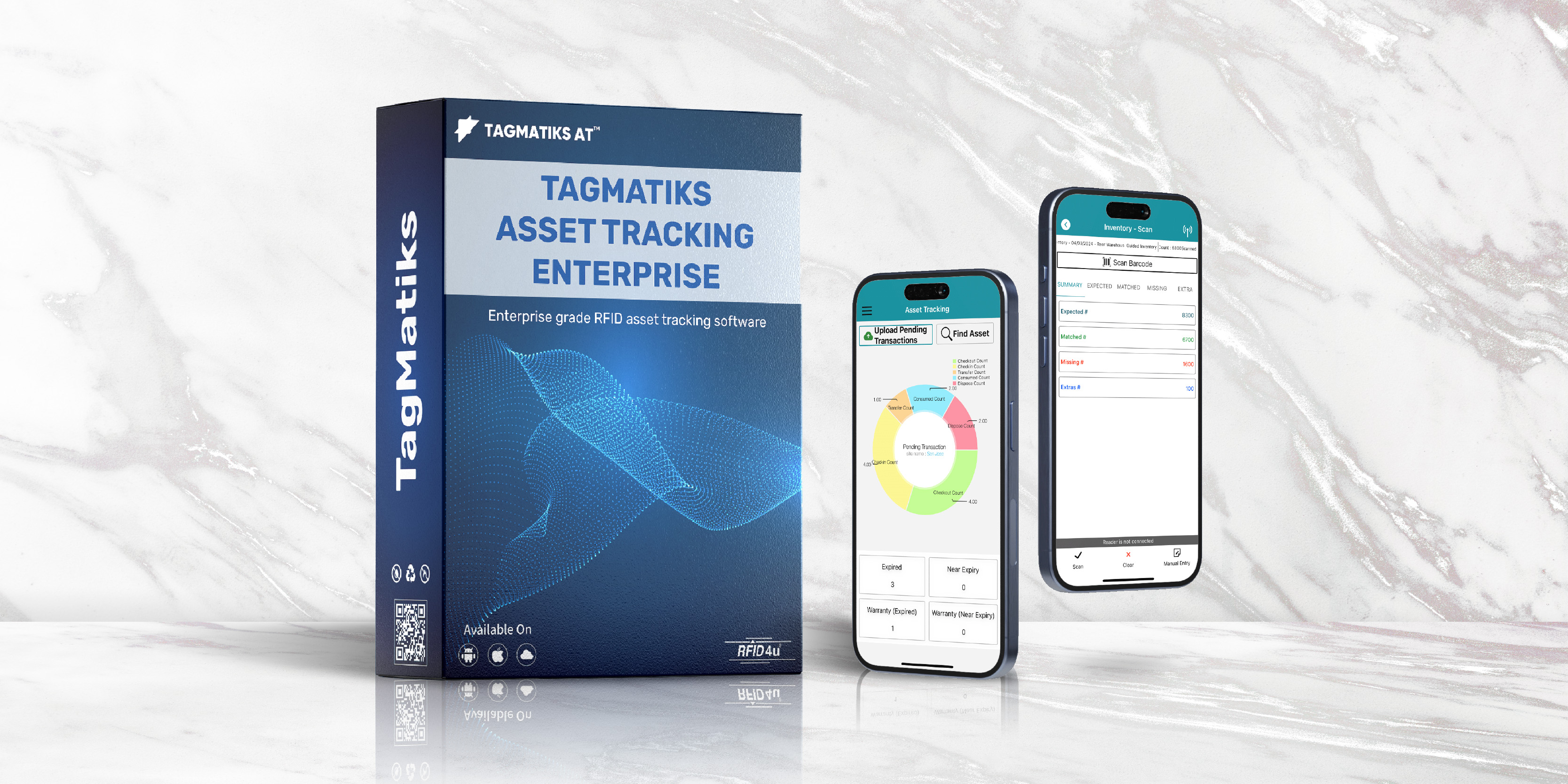
This cloud-based solution automates asset management tasks such as check-in/check-out, cycle counts, and repairs. It leverages RFID technology to streamline these processes, making it suitable for organizations looking to enhance their asset management practices
4. RFID Retail Software
RFID Retail Software Leverage RFID technology to simplify in-store operations such as cycle counting to improve inventory accuracy. Reduce manual efforts of traditionally time-consuming efforts while serving customers better.
Future Trends of Mobile RFID Software Applications
In different fields of mobile RFID software applications continue to evolve.
- IoT Integration: Combining RFID with other Internet of Things (IoT) technologies for more comprehensive data collection.
- Artificial intelligence: Implementing AI and machine learning for predictive analytics and automated decision-making.
- Augmented Reality: Using AR to provide visual guidance for RFID-based tasks in the field.
- 5G Connectivity: Leveraging high-speed, low-latency 5G networks for near-instantaneous data transmission and processing.
Conclusion
Mobile RFID software applications have transformed field operations across industries, offering unprecedented levels of efficiency, accuracy, and visibility. As technology continues to advance, these applications will play an increasingly crucial role in optimizing business processes, improving customer satisfaction, and driving competitive advantage. Organizations looking to enhance their field operations should consider the strategic implementation of mobile RFID solutions tailored to their specific needs and challenges.
Frequently Asked Questions (FAQs)
What is mobile RFID software?
Mobile RFID software is an application that runs on smartphones, tablets, or handheld RFID readers, enabling businesses to capture, process, and manage RFID tag data on the go.
Why is mobile RFID software important for businesses?
It provides real-time visibility, flexibility, and portability, allowing employees to track assets, inventory, and workflows without being tied to desktop systems.
How does mobile RFID software improve inventory management?
It enables instant stock checks, faster cycle counts, and real-time updates, reducing manual errors and improving accuracy.
Can mobile RFID software be used in asset tracking?
Yes. It helps track tools, equipment, and other assets across multiple locations, ensuring accountability and reducing losses.
What industries benefit most from mobile RFID software?
Industries such as retail, logistics, healthcare, manufacturing, and construction benefit from mobile RFID due to their need for mobility and real-time tracking.
Does mobile RFID software integrate with existing business systems?
Yes. It can integrate with ERP, WMS, POS, and cloud platforms, ensuring seamless data flow across business operations.
Can mobile RFID software support compliance and reporting?
Absolutely. It helps businesses meet industry regulations by providing audit trails, traceability, and automated reporting.
Recent Posts
-
How RFID Portals Transform Logistics & Warehousing Efficiency
Introduction Running a warehouse or logistics operation is no small task. Every day, teams manage sh …Feb 11th 2026 -
Most Common RFID Label Sizes and Their Applications
Introduction Radio Frequency Identification has become a cornerstone of modern tracking and inventor …Feb 2nd 2026 -
RFID Readers Buying Guide — Everything You Need to Know
Introduction Radio Frequency Identification (RFID) is a technology that uses radio waves to identify …Jan 19th 2026

